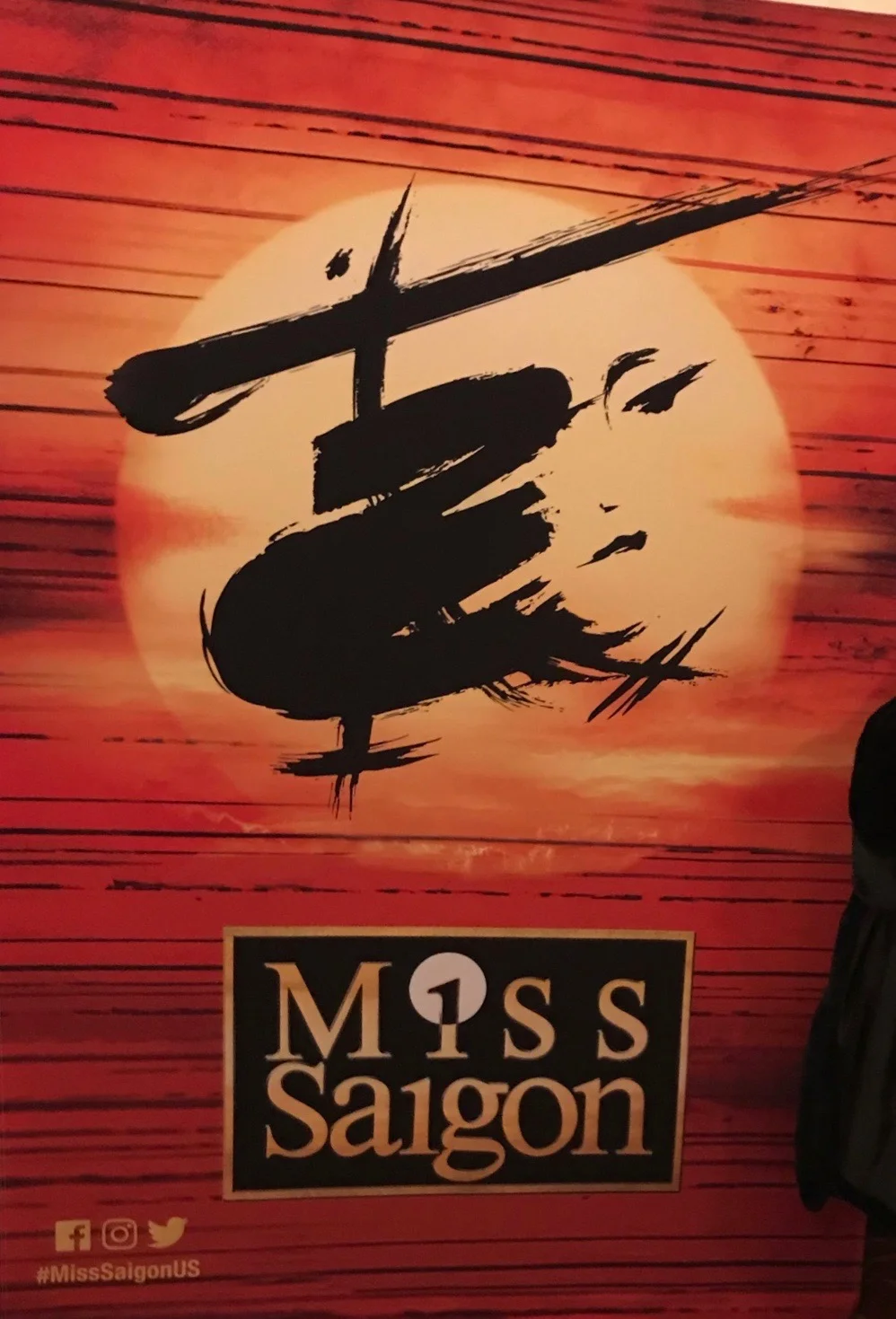Madam Saigon
While Dawn and I were in Chicago last November we decided to take advantage of their theater offerings and see a show. Hamilton was sold out for the night we had available, and we didn’t know enough about The Book of Mormon to risk it, so we went with Miss Saigon. The only things we knew about the show were it's set in Vietnam during the American invasion, and at some point there would be a helicopter which would either amaze or disappoint.
My mom had seen the show on Broadway many years ago and was so astounded by the sudden appearance of a full sized military helicopter swinging down into that theater it is the only thing she still remembers about the show and her eyes will get a bit wide when she recounts the experience.
The performance was amazing, particularly the props and stage design, and while we didn’t get a full sized helicopter, we got most of one, and were certainly amazed by the effect of it.
The story itself, besides being completely tragic, was also, at least to this liberal snowflake, racist, misogynistic, and at least a bit propagandistic.
Fast forward about six months and we attended our first Italian opera at the gorgeous Strand Theater in Shreveport. I knew even less about Madame Butterfly than I did about Miss Saigon, only that it's set in Japan and would be sung in Italian.
As I read through the scene synopses, though, I was surprised to discover a familiar story, for Miss Saigon had effectively been an updated take on Madame Butterfly.
The nature of the American interloper was significantly more villainous in Butterfly, and no effort was ever made to redeem him, whereas in Saigon he was portrayed as a co-victim with the protagonist. The cultural forces working to destroy the protagonist were somewhat different, Butterfly’s being chiefly the misogyny and capricious honor systems of feudal Japan, Saigon’s combining misogyny with the horrific nature of war (I will note here that while Saigon correctly played up the despot Ho Chi Minh grew into and the atrocities he perpetrated, it almost completely downplayed the roll America had in generating and perpetuating the Vietnamese civil war).
In both the protagonist, while being battered to one degree or another (the situation in Saigon was significantly worse), broke only when discovering the man who had fathered, but never been a father to, her child had married another woman. At this point it was assumed by everyone involved, including the mother, that the father and his new wife were the best choice to raise the child.
The assumption that a mother who has suffered to provide and care for her child through incredibly difficult circumstances, who loved it more than her own life, was a lesser choice as a parent because she was a poor, single (in both cases by choice of faithfulness to the absent father), non-white woman left me with such a terrible taste in my mouth, that despite stellar performances in both shows, there will always be a shadow on my joy of those wonderful experiences.
